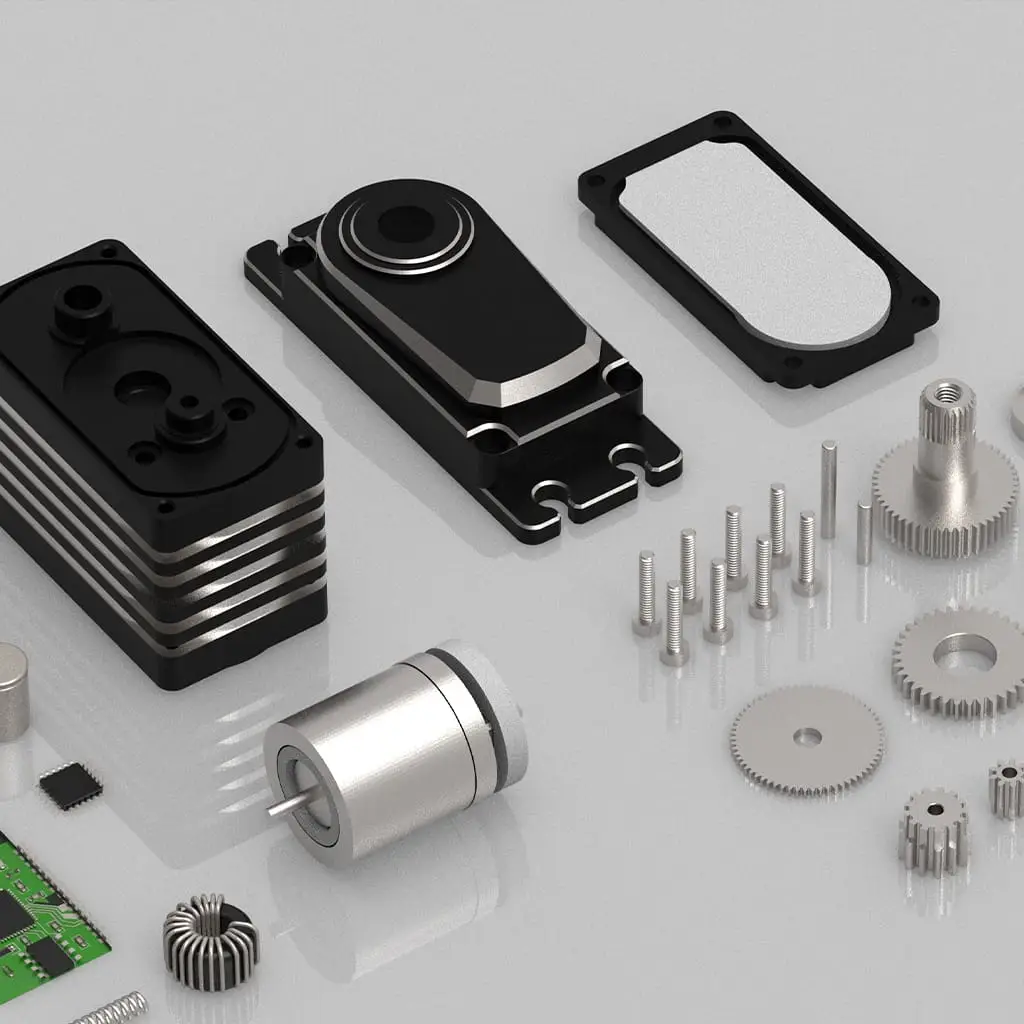Solar energy is another widely used renewable energy source, and solar tracking systems, which are key technologies for increasing solar energy conversion efficiency, are steadily growing. Servos play a crucial role in solar tracking systems by adjusting the angle of solar panels to keep them oriented toward the sun, thereby improving energy generation efficiency. Using GXServo as an example, we can explore the advantages of servos in solar tracking systems.
1. Working Principle of Solar Tracking Systems
Solar tracking systems use sensors to monitor the position of the sun in real-time, and servos adjust the angle of the solar panels to ensure they face the sun throughout the day. GXServo, as a high-response servo, enables rapid angle adjustment, ensuring that the solar panels follow the sun’s trajectory with minimal error and maintain optimal operation. The servo’s precise control allows the solar panels to track the sun’s path throughout the day, significantly improving energy conversion efficiency.
2. Mechanism of Servos Enhancing Solar System Efficiency
The angle of solar panels directly impacts their energy efficiency, and servos play a key role in ensuring that panels are always facing the sun for maximum exposure. GXServo’s high-precision control ensures that solar panels are adjusted with extreme accuracy, allowing the system to operate at peak efficiency. This is particularly beneficial in areas with fluctuating cloud cover or changing light conditions, where servos can quickly adapt to optimize solar energy generation.
3. Servo Performance in Extreme Weather Conditions
In solar tracking systems, servos not only need precise angle adjustment but must also operate in extreme weather conditions. For example, in high winds or snowstorms, servos must handle large loads without losing accuracy. GXServo, designed with such challenges in mind, features waterproof, corrosion-resistant materials and robust engineering that allow the servo to maintain stable operation in harsh weather conditions, ensuring that solar tracking systems continue to operate efficiently in extreme environments.
4. Future Development Trends
With the continuous advancement of solar technology, the application of servos in solar tracking systems will become increasingly widespread. In the future, servos will likely incorporate AI technologies, enabling intelligent adjustments based on weather forecasts and historical data to optimize solar panel performance. GXServo will continue to innovate, providing increasingly precise and intelligent solutions to support the efficient operation of solar systems.

